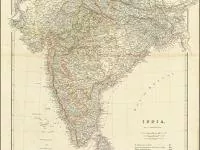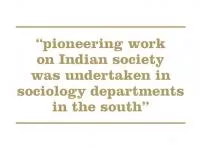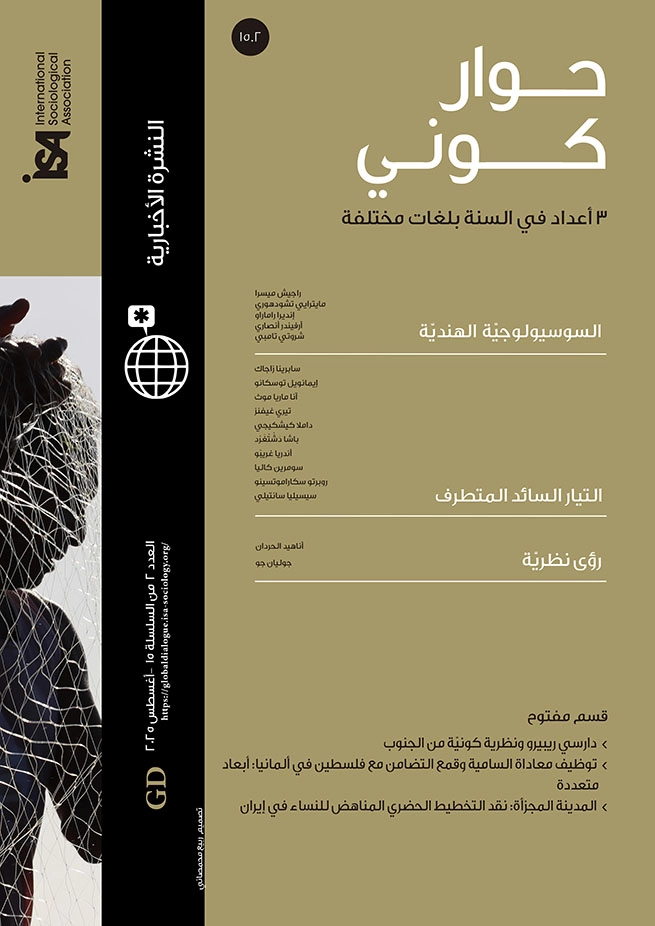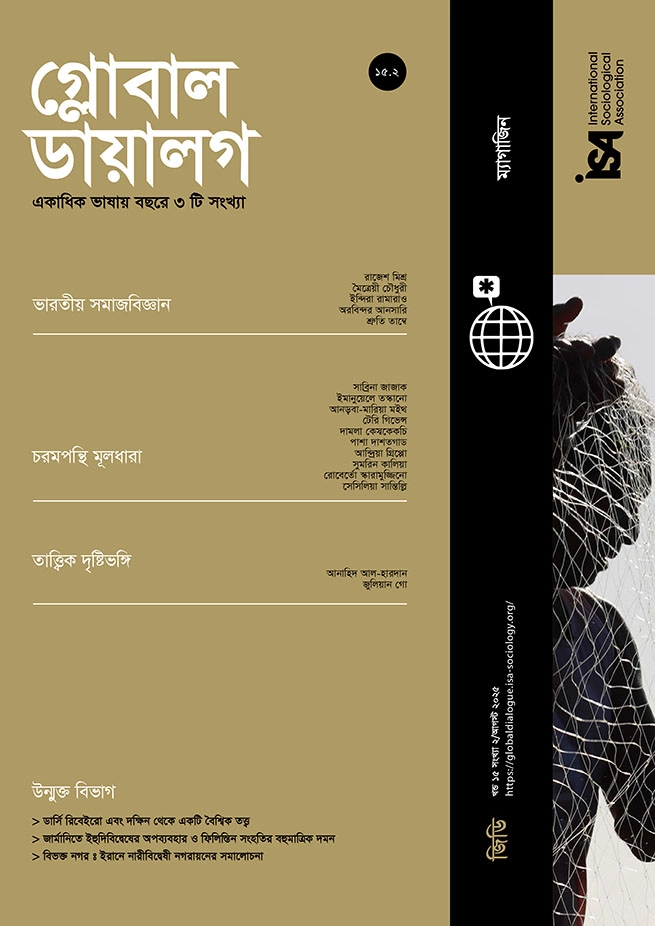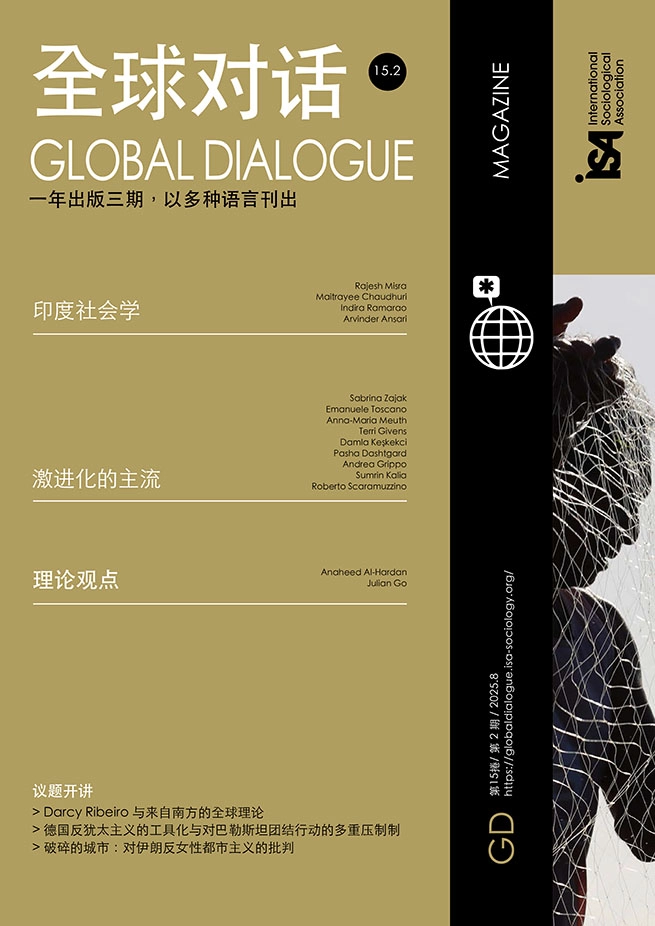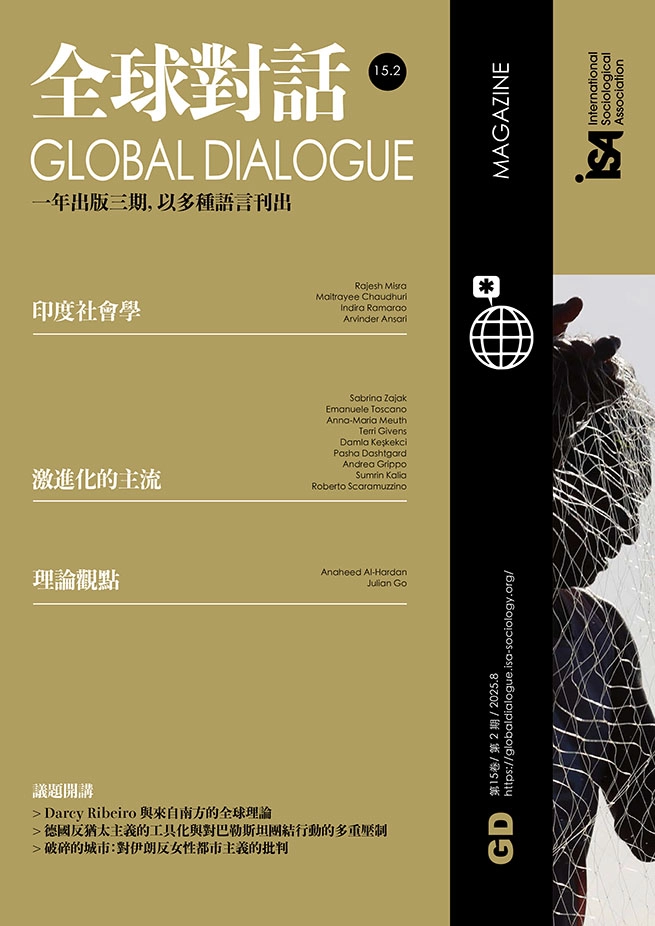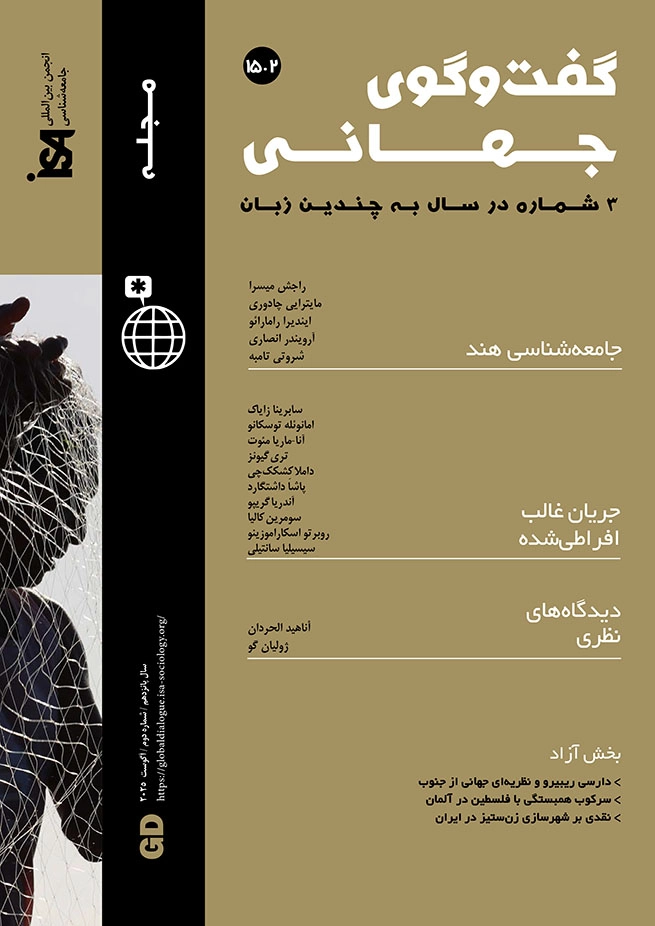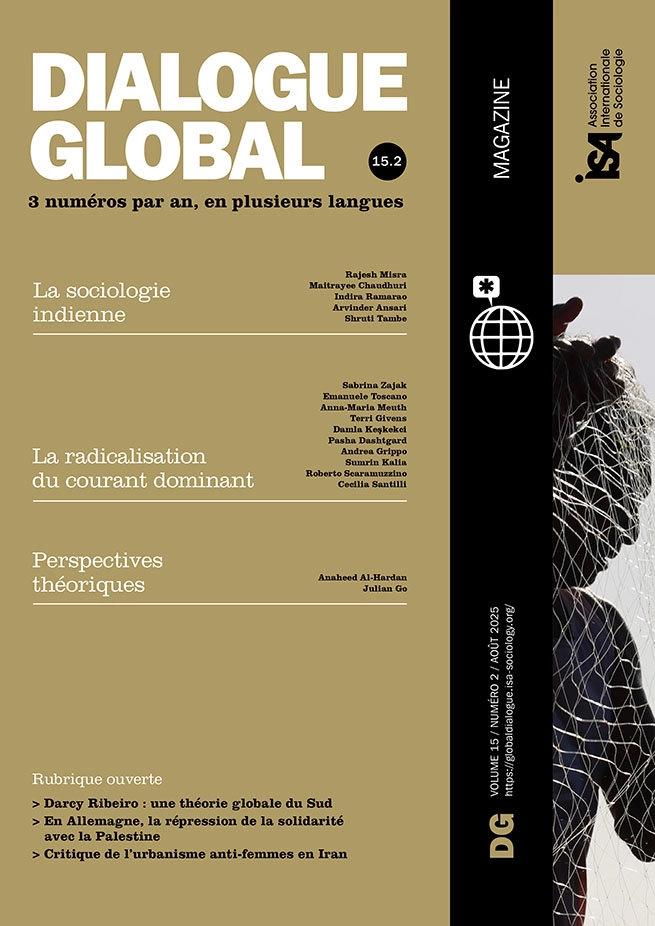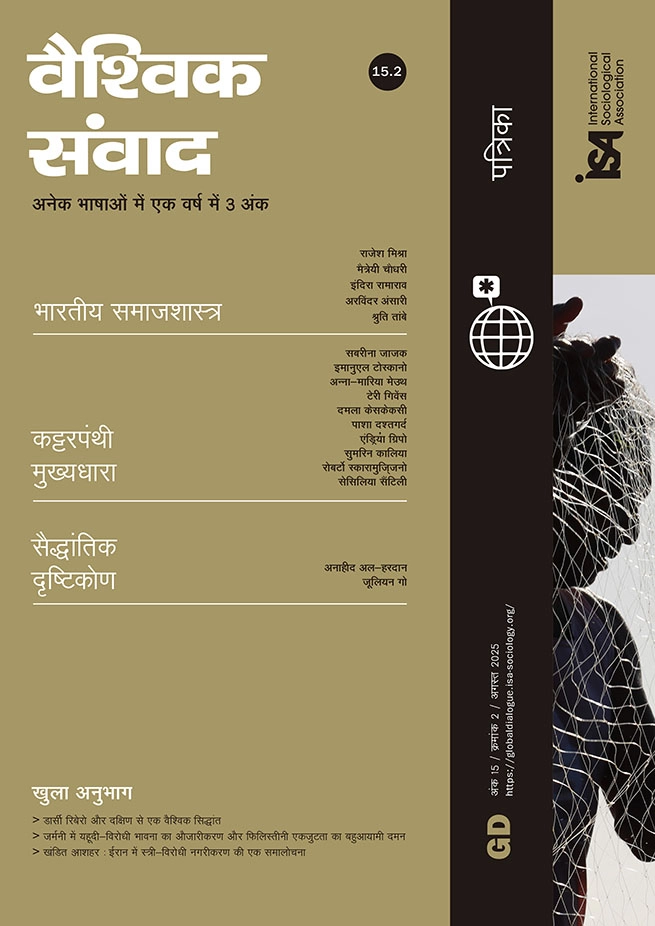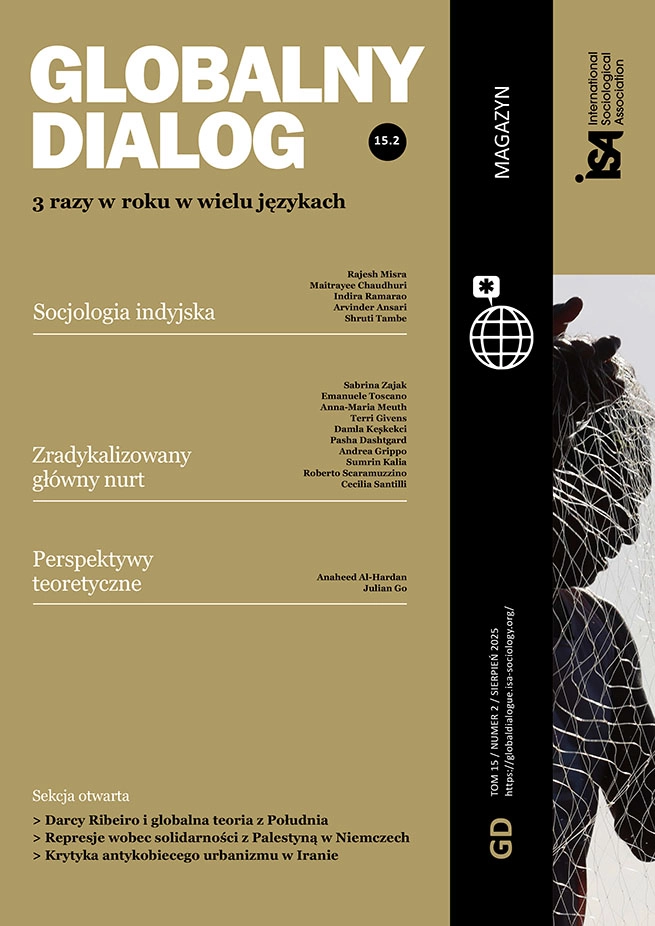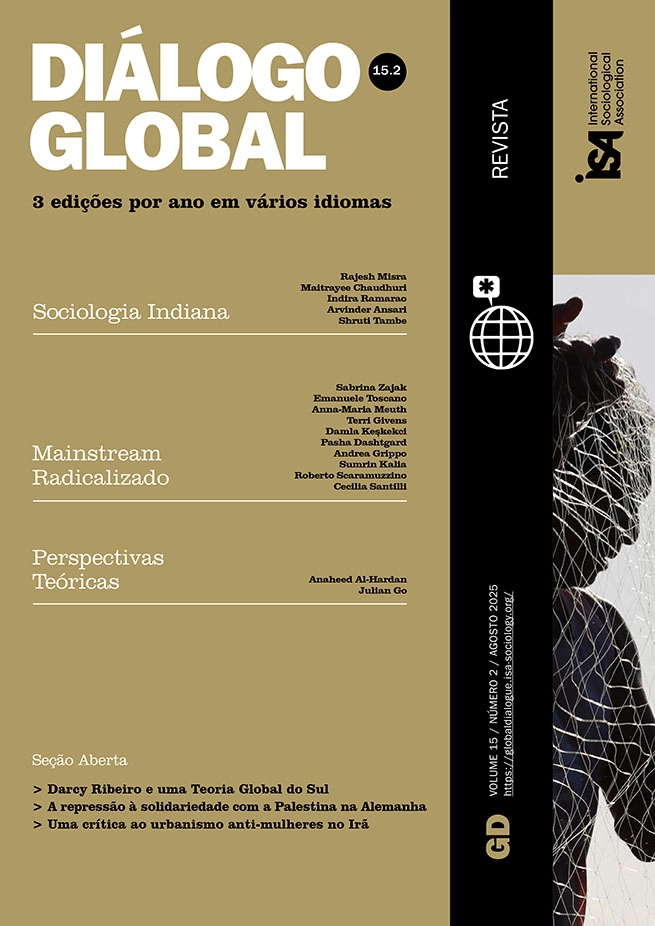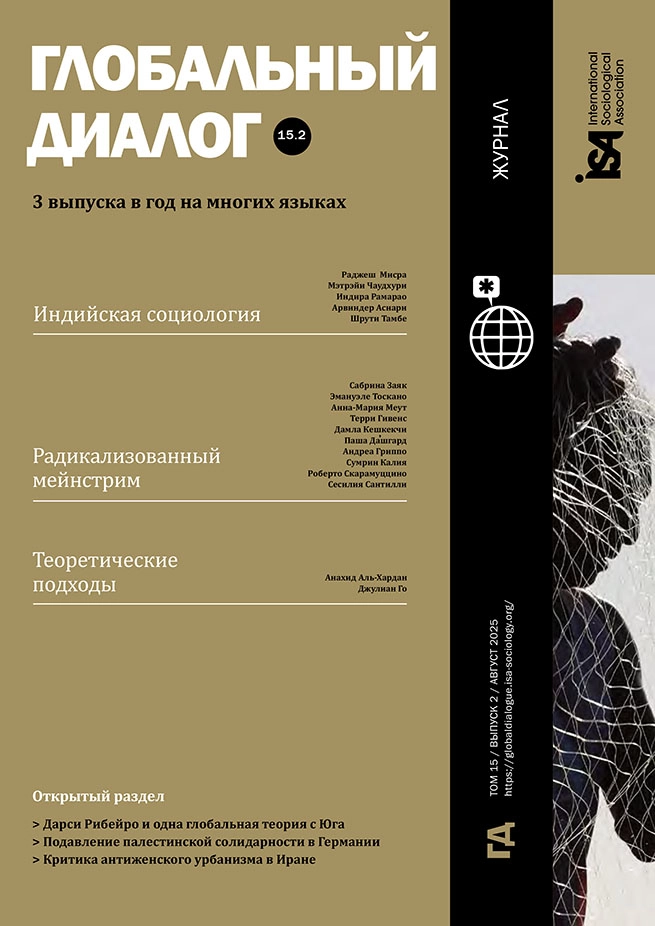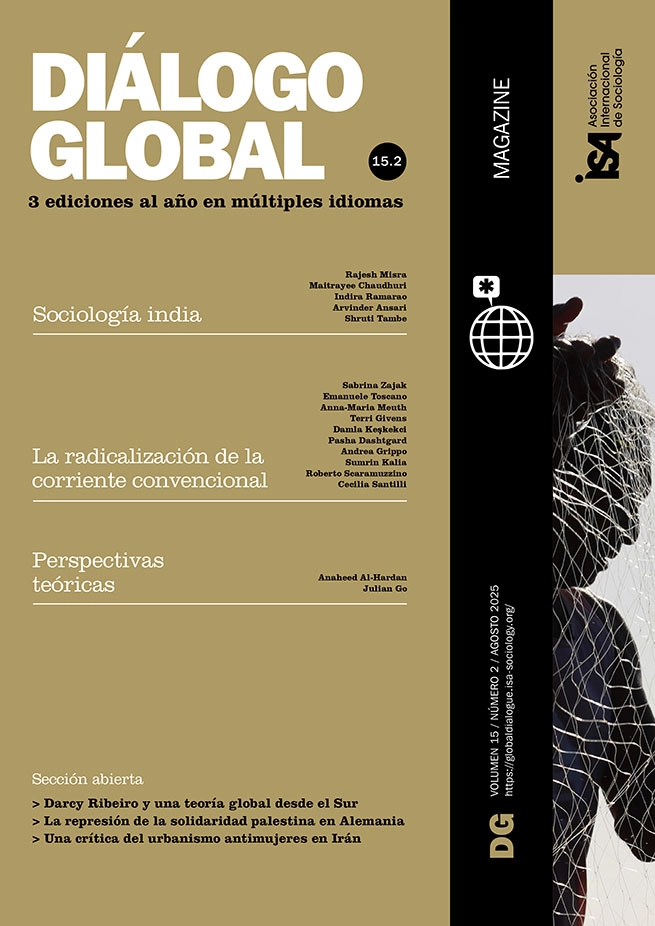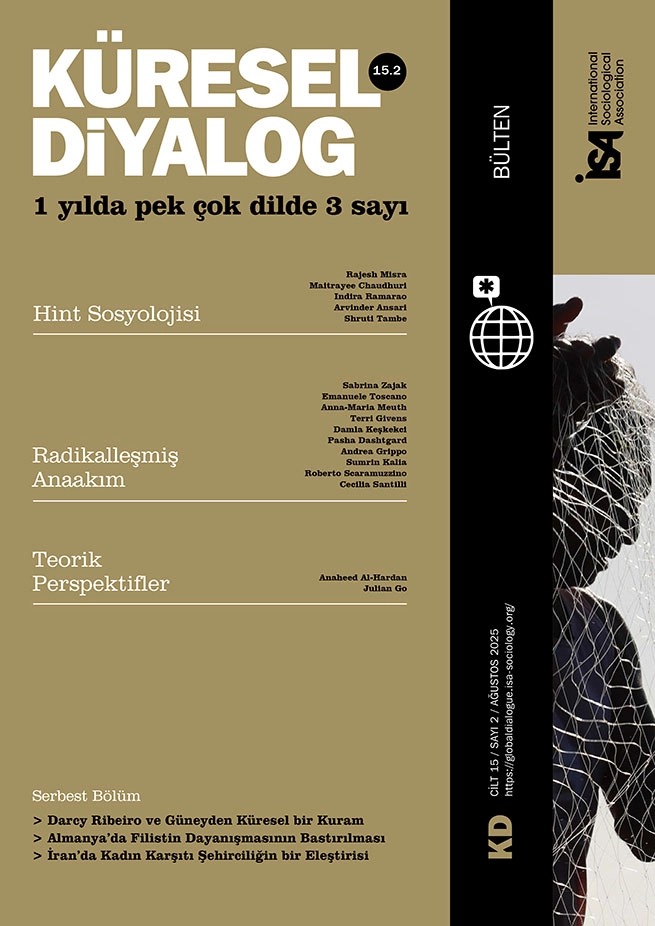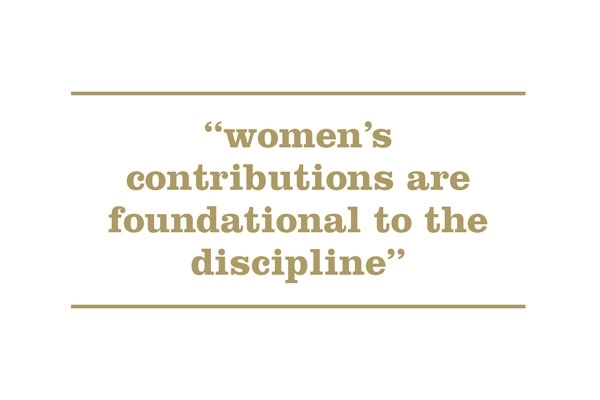The evolution of Indian sociology has been deeply influenced by the intellectual legacies of colonialism, nationalism, and modernity. These historical processes favored certain ways of creating knowledge, which often aligned with patriarchal, Brahmanical, and Eurocentric views. Additionally, these historical processes frequently excluded alternative modes of knowledge and marginalized subaltern perspectives. Within these dominant structures, women were predominantly positioned as subjects of sociological study rather than as knowledge producers or theorists in their own right. Their roles were frequently confined to analyses of family, kinship, reproduction, and social roles, reducing their lived realities to data points in broader sociological narratives. While women’s experiences were rendered visible as objects of academic inquiry, the intellectual contributions of women sociologists themselves remained largely invisible within the canonical histories of the discipline: sidelined in university curricula and underrepresented in institutional spaces of recognition and authority. It is argued that this marginalization is not incidental but reflects deeper structural and epistemic exclusions that continue to characterize Indian sociology. To grasp these problems, we need to both re-examine the histories of the fields involved and take action as feminists to make sure that the intellectual work of women is recognized as essential to the growth of those fields.
This essay provides an overview of feminist contributions to Indian sociology, emphasizing the transformative impact of women sociologists on the discipline. It examines significant interventions in pedagogy, methodology, and institutional leadership, emphasizing the challenges women have posed to dominant paradigms and sexist traditions. I discuss the pioneering ideas of thinkers like Neera Desai, Vina Mazumdar, Maithreyi Krishnaraj, Sujata Patel, Maitrayee Chaudhuri, and Sharmila Rege, who have deconstructed masculinist epistemologies and institutional hierarchies. These scholars advocate a feminist reimagining of sociology, incorporating reflexivity, epistemic pluralism, and intersectionality as essential methodologies. Thus, I argue that women’s contributions are not merely supplementary but foundational to the discipline’s evolution.
Pioneering criticism of male-centric epistemologies exposed the systemic marginalization of women
The emergence of feminist engagement within Indian sociology marked a critical intervention against the discipline’s early epistemological focus. In its formative years, Indian sociology remained preoccupied with village studies, caste hierarchies, kinship patterns, and social structures – domains that frequently overlooked women’s experiences and excluded gendered analyses from their conceptual frameworks. For feminist scholars, these omissions were challenged by making gender an important part of sociological analysis. This changed both the field’s main themes and the way research is done.
Among the earliest pioneers, Irawati Karve’s groundbreaking studies on kinship and family life integrated ethnographic sensitivity with rigorous social theory, offering a more nuanced and inclusive understanding of Indian social structures. Building on these foundations, scholars spearheaded the institutionalization of Women’s Studies in the 1970s and 1980s. Their endeavors were profoundly influenced by the “Towards Equality” report, released in 1974 by the Committee on the Status of Women in India, and energized by the broader women’s movement, carving out autonomous spaces for feminist scholarship that critiqued male-centric epistemologies and exposed the systemic marginalization of women within sociological research and academia.
Integrating feminist perspectives into teaching and research
Feminist scholars in India have reshaped sociological inquiry by challenging dominant epistemologies and advancing transformative pedagogies grounded in lived experiences, reflexivity, and intersectionality. Maithreyi Krishnaraj’s leadership at the Research Centre for Women’s Studies at SNDT Women’s University was instrumental in the integration of feminist perspectives into teaching and research. Her participatory learning approach emphasized collaboration between students and communities, encouraging the co-production of knowledge. Vina Mazumdar bridged activism and academia through her role as the founding director of the Centre for Women’s Development Studies, spearheading community-based education and research initiatives that empowered marginalized women and foregrounded their experiences in feminist scholarship. Neera Desai further institutionalized feminist pedagogy by establishing India’s first autonomous Women’s Studies Centre at SNDT Women’s University in 1974, maintaining an organic link between feminist scholarship and activism.
Sharmila Rege advanced a critical pedagogy that brought the intersections of caste, class, and gender to the fore. As Director of the Kranti Jyoti Savitribai Phule Women’s Studies Centre at the University of Pune, Rege’s use of Dalit women’s narratives and testimonies marked a radical intervention in feminist theory and pedagogy, expanding methodological horizons and challenging the exclusionary practices of both mainstream sociology and upper-caste feminist discourses.
Sujata Patel and Maitrayee Chaudhuri have made pivotal contributions to feminist pedagogy, particularly through their emphasis on reflexivity as a methodological and ethical imperative. Chaudhuri, in her influential work The Practice of Sociology, advocates classroom spaces that foster self-reflection and challenge entrenched epistemic hierarchies. Her approach emphasizes methodological pluralism and encourages students to draw upon their lived experiences as critical sources of knowledge. Patel’s interventions similarly emphasize reflexivity, interdisciplinarity, and transformative learning. Her critiques of colonial and nationalist legacies within Indian sociology expose the dominance of Eurocentric frameworks and call for a sociology that centers on the perspectives of marginalized groups. Patel’s feminist pedagogy promotes dismantling epistemic hierarchies to foster more inclusive and socially engaged knowledge production.
Situating knowledge and revealing intersectionalities
Donna Haraway’s concept of situated knowledge critiques the false claims of objectivity in science and calls for epistemologies grounded in lived experiences and specific social locations. In India, Sharmila Rege operationalized this framework through her work with Dalit women’s testimonies, advancing the epistemology of the Dalit feminist standpoint and challenging both mainstream sociology and upper-caste feminist discourses by insisting that caste, class, and gender be treated as co-constitutive structures of oppression.
Intersectionality, first conceptualized by Kimberlé Crenshaw, has become a vital analytical and methodological framework within Indian feminist sociology. Sujata Patel and Mary E. John have expanded its application to address the specific intersections of caste, class, gender, religion, and region in the Indian context. Patel critiques the colonial and Brahmanical foundations of Indian sociology, exposing exclusionary practices that intersectional approaches seek to dismantle. Similarly, Mary E. John uses intersectional analysis to look at how patriarchy, caste systems, communalism, and neoliberal globalization all work together. She calls for a feminist politics that is aware of these complicated power structures.
Situating feminist theory within the social world
Gail Omvedt and Kamla Bhasin have extended feminist praxis beyond academia, bringing feminist methodologies into grassroots movements and community learning spaces. Omvedt blurred the lines between scholar and activist by integrating feminist theory with Dalit and rural women’s movements, emphasizing participatory learning and collective empowerment. Her work on participatory action research positioned marginalized communities as co-researchers, disrupting traditional hierarchies in knowledge production. Kamla Bhasin democratized feminist knowledge through her feminist educational initiatives with Sangat and her accessible writings like What is Patriarchy? and Understanding Gender. Through storytelling, songs, and dialogue, Bhasin fostered collective learning and consciousness-raising among rural and working-class women, making feminist theory accessible at the grassroots level.
Collectively, these feminist methodologies prioritize participatory, inclusive, and ethically engaged research practices. They challenge positivist and detached modes of inquiry by promoting reflexivity, situated knowledge, and intersectionality. Reflexivity, as emphasized by Gita Chadha and Maitrayee Chaudhuri, calls on researchers to critically examine their positionality and the power relations inherent in knowledge production. Drawing on Pierre Bourdieu’s concept of reflexive sociology, feminist scholars advocate deeper self-reflection, situating the researcher within the social world they study and dismantling claims of objective neutrality. These approaches underscore a commitment to decolonizing knowledge production and fostering praxis that connects scholarship with social transformation.
Violence and discrimination against women continue
Yet, despite these foundational contributions, Indian academia continues to grapple with masculinist institutional cultures that often render women’s scholarly work invisible or peripheral. Chaudhari argues that gendered hierarchies persist, extending beyond leadership positions into knowledge production and dissemination. Research by women – especially when engaging feminist theory, caste, and marginality – is frequently undervalued or siloed within “women’s studies,” rather than integrated into mainstream sociological discourse. Maitrayee Chaudhuri criticizes this epistemic exclusion, arguing that feminist insights are often treated as supplementary rather than central to the discipline’s analytical frameworks.
Feminist sociology in India today confronts a complex set of interlocking challenges shaped by neoliberal globalization, technological change, and rising sociopolitical tensions. The expansion of the gig economy and platform-based labor has intensified the feminization of precarious work, disproportionately affecting Dalit, Adivasi, and minority women who face insecure livelihoods, wage disparities, and exclusion from social protection. These developments, compounded by the digital divide, reinforce existing hierarchies of caste, class, and gender, limiting equitable access to economic opportunities. Simultaneously, urban planning and infrastructural development often privilege dominant groups, restricting marginalized women’s access to safe and inclusive public spaces.
Environmental degradation and climate-induced displacement – issues underscored by scholars such as Bina Agarwal and Vandana Shiva – further exacerbate vulnerabilities, particularly for rural and indigenous women whose labor underpins community survival and ecological sustainability. Moreover, the rise of religious fundamentalism, communal conflicts, and political polarization has intensified violence and discrimination against women from religious minorities, undermining their rights and security. These interconnected challenges demand a feminist praxis that is reflexive, intersectional, and committed to social justice, addressing both local and global structures of inequality in the evolving world order.
Embracing pluralism and promoting socially engaged scholarship to move towards a truly inclusive and reflexive discipline
Feminist scholars have been instrumental in reshaping Indian sociology, challenging its masculinist foundations and broadening both its methodological approaches and thematic concerns. Despite encountering persistent and evolving forms of inequality, their sustained contributions and transformative interventions have secured greater inclusion and leadership for women within key academic institutions, notably the Indian Sociological Society (ISS).
Recent developments in Indian sociology signal meaningful institutional progress and a renewed commitment to inclusivity. A landmark moment came in 2016, with the election of Sujata Patel as the first woman President of the ISS – an event that marked a significant step in redressing gender disparities in academic leadership. Her tenure opened up pathways for subsequent women leaders, including Prof. Indira, Prof. Abha Chauhan, and Prof. Maitrayee Chaudhuri, whose presidencies have consolidated these gains. Collectively, their leadership has advanced the democratization of the ISS, reinforcing its focus on addressing structural inequalities and promoting inclusive scholarship.
Through critical interventions in pedagogy, research, and institutional practice, feminist scholars have foregrounded reflexivity, intersectionality, and participatory methodologies that center social justice. The contributions of women leaders, particularly within the ISS, have further strengthened these transformative efforts. Yet, the task of democratizing Indian sociology remains an ongoing project. Building a truly inclusive and reflexive discipline requires the active engagement of scholars across all genders.
The aim is not to create feminist spaces that exclude men, but rather to foster collaborative platforms where diverse voices work together to develop more comprehensive and equitable understandings of Indian society. Encouraging male scholars to engage deeply with feminist perspectives can help dismantle entrenched hierarchies and enrich the discipline. By embracing pluralism and promoting socially engaged scholarship, Indian sociology can move toward a future in which feminist thought and praxis are central to its intellectual and institutional growth.
Arvinder Ansari, Jamia Millia Islamia University, India <arvinder2009@gmail.com>
